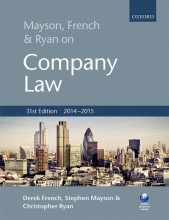Powers of Trustees - Administrative Powers - Power to Invest
9 important questions on Powers of Trustees - Administrative Powers - Power to Invest
Development of Power to Invest: Trustee Act 1925
Development of Power to Invest: Trustee Investments Act 1961
Development of Power to Invest: Trustees Act 2000
- Higher grades + faster learning
- Never study anything twice
- 100% sure, 100% understanding
Section 3 TA 2000: General Power of Investment
***This does not mean that trustees can necessarily invest in anything. They still owe a duty of care and skill.
Section 7 TA 2000: Application of Power of Investment
Section 6 TA 2000: Restriction on Power of Investment
In other words, the general power can be expanded, restricted or excluded by the trust instrument or subordinate legislation.
Non-Application of Power of Investment
- Section 36(3) TA 2000: Trustees of pension schemes
- Section 37(1) TA 2000: Authorised unit trusts
- Section 38 TA 2000: Charitable trusts who are managing common investment or common deposit schemes
Section 8(1) TA 2000: Special Provision i.r.o Land
(a) as an investment
(b) for occupation by a beneficiary
(c) for any other reason.
Section 8(3) TA 2000: Special Provision i.r.o Land
The question on the page originate from the summary of the following study material:
- A unique study and practice tool
- Never study anything twice again
- Get the grades you hope for
- 100% sure, 100% understanding































